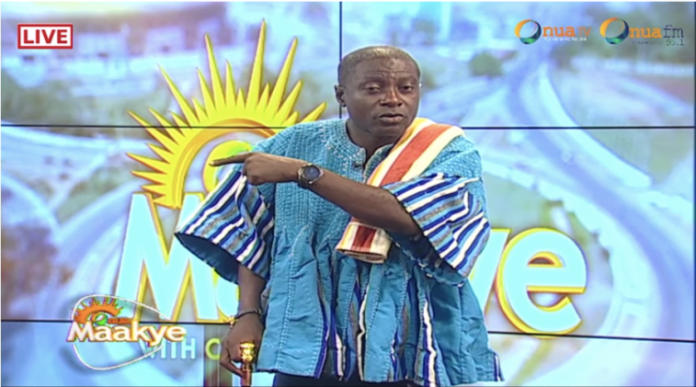The controversy surrounding Captain Smart’s alleged incitement of illegal mining activities in Obuasi, Ghana, highlights the complex interplay of media influence, socio-economic grievances, and the volatile nature of resource extraction in developing countries. Captain Smart, a television host on Accra-based Onua TV, is accused of making inflammatory remarks urging the youth of Obuasi to forcefully seize resources from the AngloGold Ashanti (AGA) mine, citing the company’s alleged exploitation of the region and the resulting impoverishment of its residents. His words, captured in a widely circulated video, specifically called on the youth to “attack the mine and take what you want,” a statement perceived by many as a direct incitement to violence and illegal activity. This incident underscores the potent role of media personalities and their potential to incite action, particularly in contexts of pre-existing socio-economic tensions and historical grievances.
The accusations against Captain Smart have drawn widespread condemnation, including from prominent figures within the media industry. Vim Lady, a well-known journalist and associate of Captain Smart, publicly criticized his statements, labelling them as irresponsible and potentially contributing to the ensuing chaos. This internal critique within the media landscape emphasizes the importance of responsible journalism and the ethical considerations surrounding reporting on sensitive issues, especially in volatile environments. The incident highlights the fine line between freedom of expression and the potential for such expression to incite violence and unlawful behavior, raising critical questions about the role and responsibilities of media figures in shaping public discourse.
The aftermath of Captain Smart’s comments saw a tragic escalation of events. A group of illegal miners, allegedly emboldened by the rhetoric, invaded the AGA mine, leading to a violent confrontation with security forces. This clash resulted in the reported deaths of nine miners and injuries to several others. The Ghana Armed Forces, tasked with guarding the site as part of Operation Calm Life, claimed that their troops fired in self-defense after being attacked by the miners. This tragic outcome tragically illustrates the potential real-world consequences of inflammatory rhetoric and the need for responsible communication, particularly in contexts where tensions are already high. The incident underscores the fragility of stability in areas where resource extraction overlaps with economic hardship and social unrest.
The government’s response to the incident has been multifaceted, focusing on investigation, accountability, and immediate support for the victims and their families. President John Dramani Mahama ordered a thorough investigation into the events surrounding the mine invasion and the subsequent clash with security forces. This investigation aims to establish a clear understanding of the sequence of events leading to the fatalities and injuries, potentially including an assessment of the role played by Captain Smart’s alleged incitement. Furthermore, the President directed AGA to cover the medical expenses of those injured in the confrontation and to ensure proper burial arrangements for the deceased. This directive reflects the government’s commitment to addressing the immediate needs of the affected families while the investigation unfolds.
The Obuasi incident raises complex questions about the relationship between mining companies, local communities, and the government in resource-rich regions. The allegations against Captain Smart point to underlying grievances regarding the distribution of benefits from resource extraction. His rhetoric, while condemned for its inflammatory nature, tapped into existing frustrations within the community concerning the perceived disparity between the wealth generated by mining activities and the economic conditions of the local population. This incident highlights the need for greater transparency and accountability in the mining sector, as well as mechanisms for ensuring that local communities benefit equitably from resource extraction. Furthermore, it underscores the importance of addressing the socio-economic conditions that can create fertile ground for unrest and violence.
The Obuasi mine invasion and its tragic consequences serve as a stark reminder of the challenges inherent in resource governance and the need for responsible communication in volatile environments. The incident necessitates a comprehensive approach that addresses the underlying socio-economic grievances, promotes responsible media practices, and strengthens mechanisms for conflict resolution and community engagement within the extractive industries. It also highlights the crucial role of government oversight and corporate social responsibility in ensuring that resource extraction contributes to sustainable development and benefits all stakeholders, including local communities. The investigation ordered by President Mahama provides an opportunity to delve deeper into these complex issues and develop strategies for preventing similar tragedies in the future. The incident should also serve as a catalyst for broader dialogue on the role of media in shaping public opinion and the ethical responsibilities of journalists, particularly in contexts of social and economic vulnerability.


